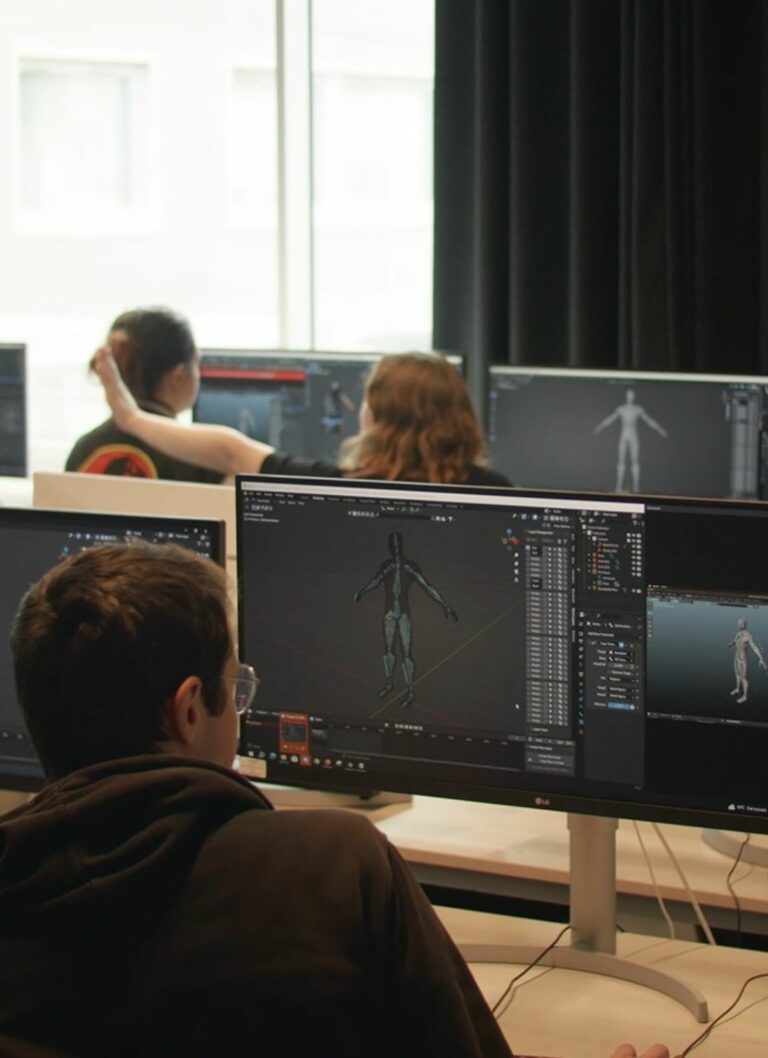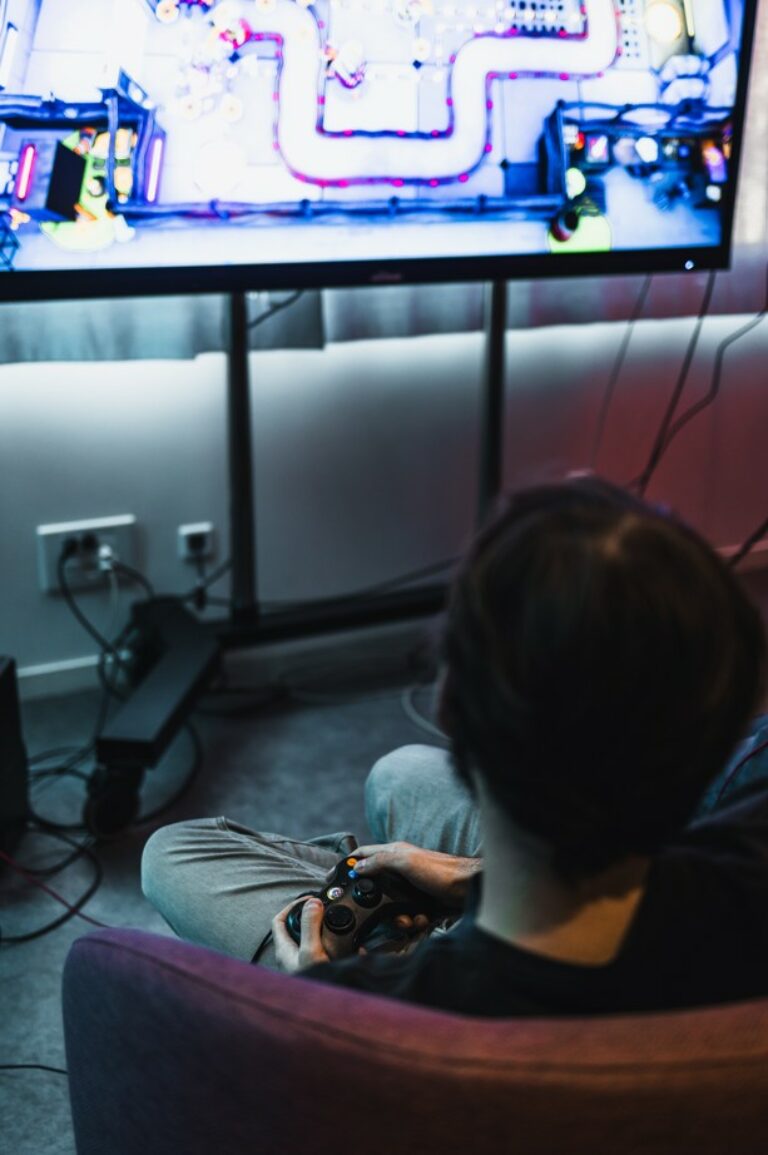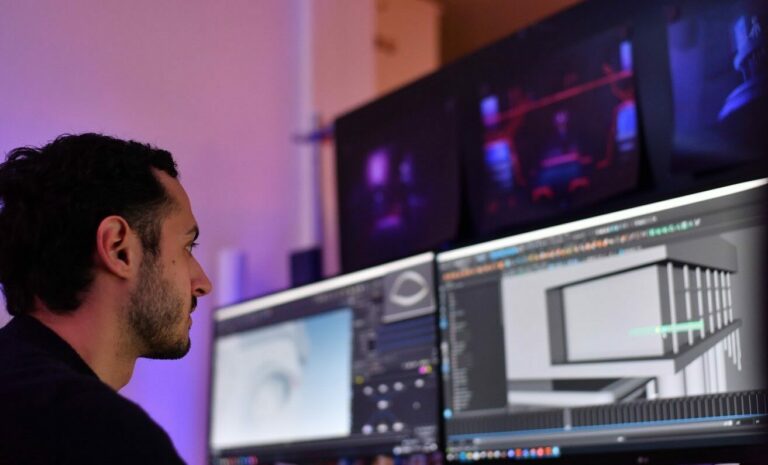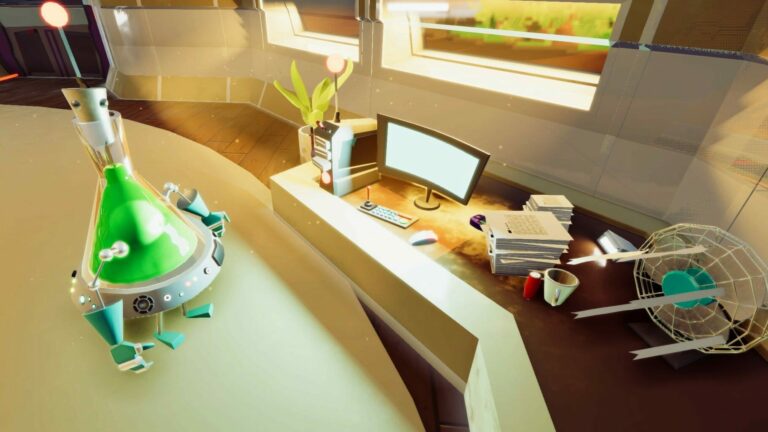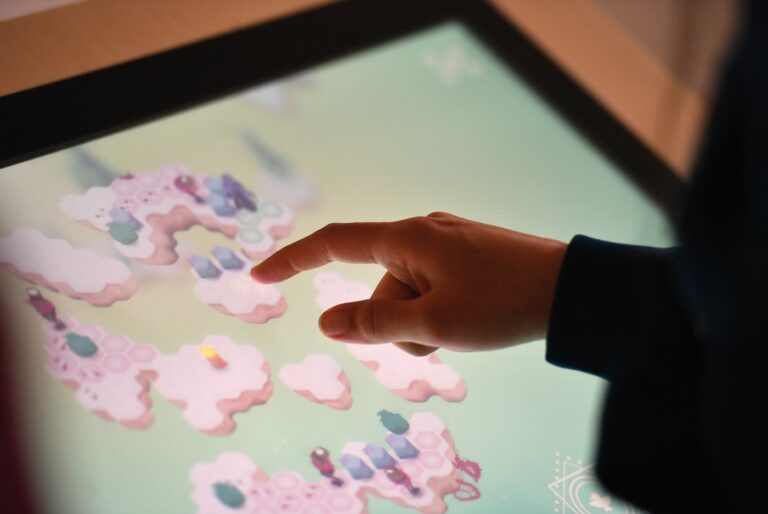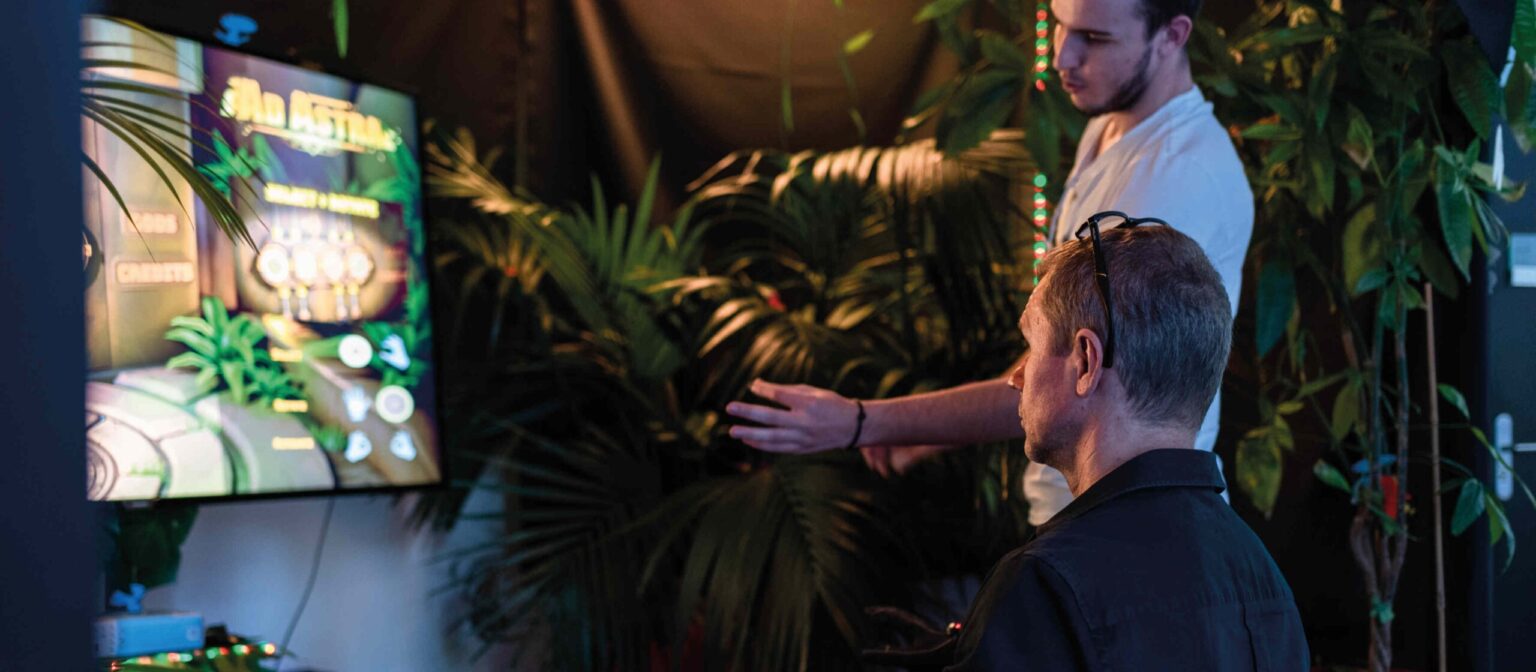
- Training Video Game
To become a technical video game designer, learn game engines like Unity, code in C++ or C#, and build a strong portfolio. A degree helps, but hands-on projects matter more. Blend creative design with technical skill to bring game ideas to life.
What does a technical game designer actually do?
This Role is a mix between programming and game designing. A technical game designer helps bring the creative team’s ideas to life by making sure they work inside the game engine. It’s a job where you are part developer, part designer, and fully focused on making things playable, smooth, and fun.
You’ll work closely with both designers and programmers. You’ll create tools, edit , tweak game mechanics, and solve problems that make the game better for players.
A day in the life of a technical game designer and main tasks
Your day could start by checking Jira or Trello boards to see what tasks need attention. You might spend the morning fixing bugs or optimizing code in Unity or Unreal Engine. Afternoons often involve working with designers to bring their ideas into the game by scripting new mechanics or setting up gameplay systems.
- Translating the game designers’ ideas into viable interactive systems.
- Working with the programmers to develop gameplay tools tailored to the needs of the creative teams.
- Optimising game performance by adjusting mechanics and scripts to ensure optimum fluidity.
- Ensuring the technical consistency and balance of the game’s functionalities.
- Testing and debugging game systems to ensure a smooth user experience (UX) (ensuring “ Flow “).
- Designing internal tools to improve production pipelines and facilitate the work of developers.
Technical game designer is also involved in integrating animations, special effects and game physics, making him or her indispensable during the development phase.
Skills you will need to be a technical game designer
To excel in this profession, a number of skills are required:
- Programming: Strong skills in C++, C#, Python
- Game Engines: Experience with Unity or Unreal
- Gameplay Mechanics: Understanding how systems work and feel
- Tool Development: Creating tools to help other developers
- Teamwork: Working with different teams daily
- Debugging: Fixing problems fast and efficiently
- Adaptability: Staying on top of new tech like generative AI and procedural tools
Generative AI and Gaussian Splatting are among the latest revolutions in creative processes.

Which high school diploma should you choose?
To prepare for a career as a technical game designer, several high school diplomas are suitable:
- General Baccalaureate with specializations in Mathematics and Digital Technology and Computer Science.
- Technological Baccalaureate STI2D (Industrial and Sustainable Development Sciences and Technologies).
- Professional Baccalaureate SN (Digital Systems) for a more technical approach.
These programs provide a solid foundation in mathematics and computer science, which are key skills for this profession.
Training and degrees to become a technical game designer
Several academic paths lead to this profession:
- BTS and DUT in computer science, multimedia, and internet professions.
- Bachelor’s degrees in computer science or video games.
- Master’s degrees in video game design, applied computer science, or advanced programming.
- Specialized video game schools ESMA – offering comprehensive training, including technical development and game design.
Some programs include collaborative projects with video game studios, providing initial professional experience.
Building a Portfolio That Gets Noticed
Your portfolio is your proof of skills. Make sure it includes:
- Small games or prototypes you’ve built
- Level designs or gameplay systems
- Tools or scripts you’ve created to solve a problem
- Documentation: screenshots, feature lists, development notes
Host your portfolio on:
- GitHub
- Personal website or blog
- ArtStation or Itch.io (for downloadable demos)
Get experience that matters
- Internships: Apply to studios even during school
- Game Jams: Join 1-2 day events to build games fast and meet people
- Freelance Projects: Help indie teams or work on mods
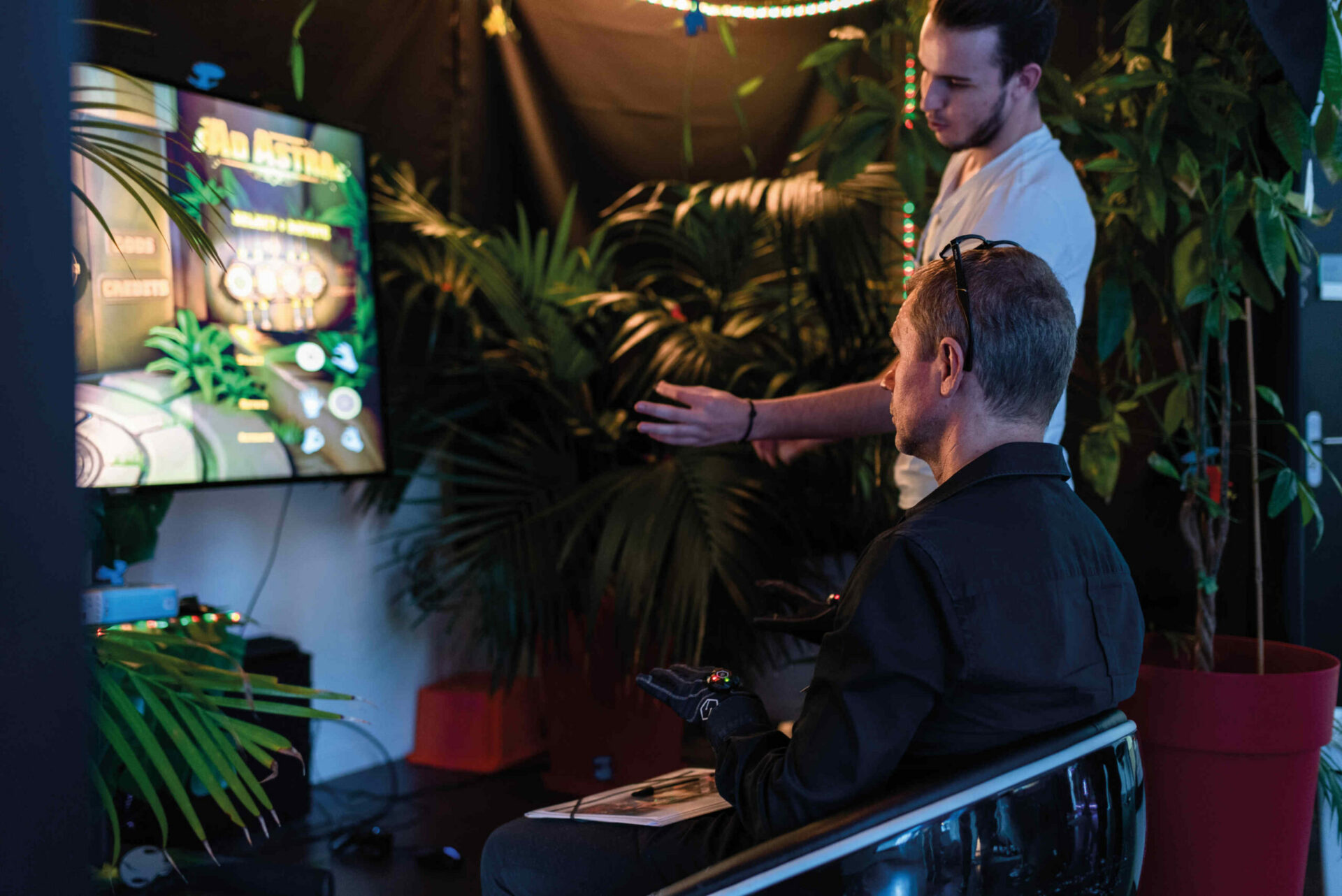
Top mistakes to avoid as a beginner game designer
- Focusing only on visuals and ignoring gameplay systems
- Not learning to debug your own code
- Building too big too soon instead of starting small
- Avoiding collaboration: working solo slows your growth
What is the salary of a technical game designer?
-
Salary (USA – 2026)
-
Entry-Level (0–2 years): $55,000 – $65,000/year
-
Mid-Level (3–6 years): $75,000 – $90,000/year
-
Senior-Level (7+ years): $95,000 – $130,000/year
-
Overall National Average: $80,265/year
-
Possible career paths
After several years of experience, a technical game designer can progress to positions such as:
- Lead technical designer: Managing a team of technical designers.
- Technical director: Supervising all technical aspects of the game.
- Game producer: Coordinating projects in collaboration with development teams.
- Video game development consultant: Helping studios optimize their games.
- Freelance: Creating your own video game studio or developing technical solutions for the industry.
With the rise of cloud gaming and virtual reality (VR AR XR) games, technical game designers with expertise in artificial intelligence and advanced programming are in high demand.
Which school should you choose to become a technical game designer?
Several criteria should be taken into account: the quality of the teaching staff, the balance between technical and creative aspects, the projects carried out, the equipment available, and links with professional studios.
ESMA offers a training program in video games designed to combine artistic approach and technical skills. It allows students to explore the different stages of game creation, from concept to production, including game design and programming.
The profession of technical game designer is a good example of this balance between creativity and logic. Ideal for people with technical skills and a real passion for the world of video games, it meets a growing demand in the industry.

